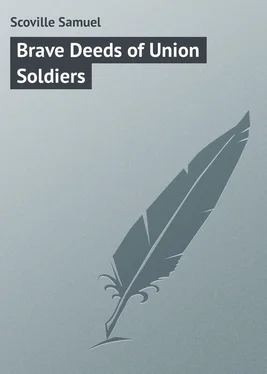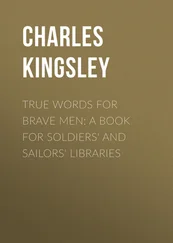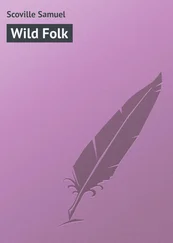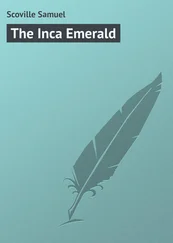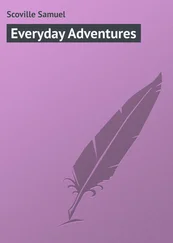Samuel Scoville - Brave Deeds of Union Soldiers
Здесь есть возможность читать онлайн «Samuel Scoville - Brave Deeds of Union Soldiers» — ознакомительный отрывок электронной книги совершенно бесплатно, а после прочтения отрывка купить полную версию. В некоторых случаях можно слушать аудио, скачать через торрент в формате fb2 и присутствует краткое содержание. Жанр: foreign_prose, foreign_humor, Анекдоты, на английском языке. Описание произведения, (предисловие) а так же отзывы посетителей доступны на портале библиотеки ЛибКат.
- Название:Brave Deeds of Union Soldiers
- Автор:
- Жанр:
- Год:неизвестен
- ISBN:нет данных
- Рейтинг книги:5 / 5. Голосов: 1
-
Избранное:Добавить в избранное
- Отзывы:
-
Ваша оценка:
- 100
- 1
- 2
- 3
- 4
- 5
Brave Deeds of Union Soldiers: краткое содержание, описание и аннотация
Предлагаем к чтению аннотацию, описание, краткое содержание или предисловие (зависит от того, что написал сам автор книги «Brave Deeds of Union Soldiers»). Если вы не нашли необходимую информацию о книге — напишите в комментариях, мы постараемся отыскать её.
Brave Deeds of Union Soldiers — читать онлайн ознакомительный отрывок
Ниже представлен текст книги, разбитый по страницам. Система сохранения места последней прочитанной страницы, позволяет с удобством читать онлайн бесплатно книгу «Brave Deeds of Union Soldiers», без необходимости каждый раз заново искать на чём Вы остановились. Поставьте закладку, и сможете в любой момент перейти на страницу, на которой закончили чтение.
Интервал:
Закладка:
"Did you catch that pig yesterday?" finally said Johnny.
"We did that," retorted the prisoner, "but it wasn't the one we were after."
Johnny had always been able to ride the most spirited horses on the farm and after Shiloh he asked to be transferred from the infantry to Colonel Jacob's Kentucky Cavalry. There he attracted the attention of the colonel so that the latter gave him one of the best horses in the regiment and a place in the Fighting First, as the best-mounted company was called, which the colonel always led personally in every charge. In this company Johnny was taught how to handle a sabre. The regular sabre was too heavy for him, but Colonel Jacob had one light, short one specially made which Johnny learned to handle like a flash. A German sergeant, who had been a great fencer on the Continent, taught him all that he knew and before long Johnny was an expert in tricks of fence which stood him in good stead later on. One in special he so perfected that it was never parried. Instead of striking down with the sabre as is generally done, Johnny learned a whirling, flashing upper-cut which came so rapidly that generally an opponent could not even see much less parry it. He was also armed with the regulation revolver and a light carbine instead of the heavy revolving rifle used by the rest of the troop. At Perryville he fought his first battle with his new regiment. In the charge he stuck close to Colonel Jacob and received a ball through his left leg above the knee. Fortunately it did not break any bone and Johnny tore a strip off his shirt, bandaged the hole and went on with the fight. While he was doing this, the greater part of the regiment passed on and when Johnny started to join his colonel, he could not find him. He rode like the wind over the field and soon behind a little patch of woods saw Colonel Jacobs with only six or seven men, the rest having been scattered in the fight. Johnny spurred his horse over to him and the colonel was delighted to be joined by his little body-guard. As they were riding along to rejoin the rest of the regiment, from out a clump of bushes a squad of fifty men led by a Confederate major dashed out calling on them to surrender. Colonel Jacob hesitated, for some of his men were wounded and the odds seemed too great for a fight. Before he had time to answer, Johnny slipped in front of him, drew out his revolver and fired directly into the Confederate officer's face, killing him instantly and then drawing his sabre dashed into the ranks of the enemy. The first man he met was a big fellow whose bare, brawny arm and blood-stained sabre proved him a master with his weapon. Johnny never gave him a chance to strike. At the whirl of his light sabre his opponent instinctively raised his weapon in the ordinary parry of a down-blow and the point of Johnny's sabre caught him under the chin and toppled him off his horse. The Union men gave a cheer, followed their little leader, breaking clear through the demoralized Confederates and joined their command at the other side of the field.
A few weeks later they had a skirmish with the troop of John Morgan, the most dreaded cavalry leader and fighter in all the South. Johnny, as usual, was in the front of the charge and had just cut at one man when another aimed a tremendous blow at his head in passing. There was just time for Johnny to raise the pommel of his sabre to save his head, but the deflected blow caught him on the leg and he fell from the horse with blood spurting out of his other leg this time. He lay perfectly quiet, but another rebel had seen him fall and spurring forward, caught him by the collar, saying:
"We'll keep this little Yankee in a cage to show the children."
Johnny did not approve of this cage-idea and although there was no room to use the sabre, managed to work his left hand back into his belt, draw his revolver and shoot his captor dead. In another minute his company came riding back and he was whirled up behind his colonel and rode back of him to safety. This last wound proved to be a serious one and he was sent back to Indiana on a furlough to give it time to heal. On the way back he was stopped by a provost guard and asked for his pass.
"My colonel forgot to give me any passes," said Johnny, "but here are two that the rebels gave me," showing his bandaged legs, and the guard agreed with him that this was pass enough for any one. As his wound refused to heal, against his wishes he was discharged and once more returned home. He then tried to enlist again, but each time he was turned down because of the unhealed wound. Finally, Johnny traveled clear to Washington and had a personal talk with President Lincoln and explained to him that his wound would never heal except in active service. His arguments had such force with the President that a special order was made for his enlistment and he fought through the whole war and afterward joined the regular army.
The littlest hero of the war was Eddie Lee. Shortly before the battle of Wilson's Creek, one of the Iowa regiments was ordered to join General Lyon in his march to the creek. The drummer of one of the companies was taken sick and had to go to the hospital. The day before the regiment was to march a negro came to the camp and told the captain that he knew of a drummer who would like to enlist. The captain told him to bring the boy in the next morning and if he could drum well he would give him a chance. The next day during the beating of the reveille, a woman in deep mourning came in leading by the hand a little chap about as big as a penny and apparently not more than five or six years old. She inquired for the captain and when the latter came out, told him that she had brought him a drummer boy.
"Drummer boy," said the captain; "why, madam, we don't take them as small as this. That boy hasn't been out of the cradle many months."
"He has been out long enough," spoke up the boy, "to play any tune you want."
His mother then told the captain that she was from East Tennessee where her husband had been killed by the rebels and all her property destroyed and she must find a place for the boy.
"Well, well," said the captain, impatiently, "Sergeant, bring the drum and order our fifer to come forward."
In a few moments the drum was produced and the fifer, a tall, good-natured fellow over six feet in height, made his appearance.
"Here's your new side-partner, Bill," said the captain.
Bill stooped down, and down and down until his hands rested on his ankles and peered into the boy's face carefully.
"Why, captain," said he, "he ain't much taller than the drum."
"Little man, can you really drum?" he asked.
"Yes, sir," said the boy. "I used to drum for Captain Hill in Tennessee. I am nearly ten years old and I want the place."
The fifer straightened himself up slowly, placed his fife at his mouth and commenced to play "The Flowers of the Forest," one of the most difficult pieces to follow on the drum. The little chap accompanied him without a mistake and when he had finished began a perfect fusillade of rolls and calls and rallies which came so fast that they sounded like a volley of musketry. When the noise had finally died out, the captain turned to his mother and said:
"Madam, I'll take that boy. He isn't much bigger than a minute but he certainly can drum."
The woman kissed the boy and nearly broke down.
"You'll surely bring him back to me, captain," she said.
"Sure," said the captain; "we'll all be discharged in about six weeks."
An hour later Eddie was marching at the head of the Iowa First playing "The Girl I Left Behind Me" as it had never been played before. He and Bill, the fifer, became great chums and Eddie was the favorite of the whole regiment. Whenever anything especially nice was brought back by the foraging parties, Eddie always had his share and the captain said that he was in far more danger from watermelons than he was from bullets. On heavy marches the fifer would carry him on his back, drum and all, and this was always Eddie's position in fording the numerous streams.
Читать дальшеИнтервал:
Закладка:
Похожие книги на «Brave Deeds of Union Soldiers»
Представляем Вашему вниманию похожие книги на «Brave Deeds of Union Soldiers» списком для выбора. Мы отобрали схожую по названию и смыслу литературу в надежде предоставить читателям больше вариантов отыскать новые, интересные, ещё непрочитанные произведения.
Обсуждение, отзывы о книге «Brave Deeds of Union Soldiers» и просто собственные мнения читателей. Оставьте ваши комментарии, напишите, что Вы думаете о произведении, его смысле или главных героях. Укажите что конкретно понравилось, а что нет, и почему Вы так считаете.
